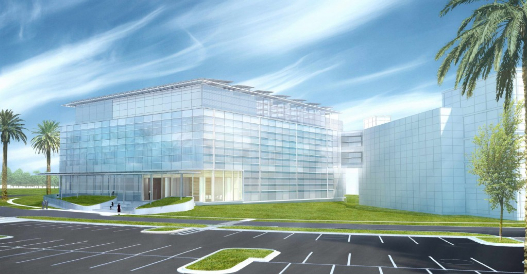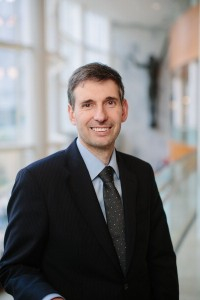Mayo Clinic and United Therapeutics Collaborate on Lung Restoration Center
Written by |

The Mayo Clinic’s Jacksonville, Florida unit and Silver Spring, Maryland-based biotechnology company United Therapeutics Corporation have announced that they will collaborate on construction and operation of a lung restoration center to be located on Mayo’s Jacksonville campus. The project’s goal is to significantly increase the volume of lungs available for transplants for a range of patients with various lung diseases, including those with PAH, by preserving and restoring selected marginal donor lungs, thereby making them viable for transplantation.
The new facility will utilize “ex vivo lung perfusion technology,” a process by which marginal donor lungs are treated with specialized solutions and gases that can reverse lung injury and remove excess fluids in the lung, making them clinically viable for transplant. Lungs restored at the new Jacksonville facility will be made available to patients not only at the Mayo Clinic but to other transplant centers throughout the United States as well. The new center’s construction phase is projected to be completed in late 2017. Financial details of the agreement were not disclosed.
 “This collaboration is exciting because it allows Mayo Clinic to bring the latest advances in life-saving technology to transplant patients,” says Gianrico Farrugia, M.D. , chief executive officer of Mayo Clinic’s campus in Florida. “Ultimately, this relationship will help Mayo Clinic expand its reach to patients who could benefit from this innovation. Increasing the number of lungs available for transplantation provides more options for patients suffering from pulmonary disease.”
“This collaboration is exciting because it allows Mayo Clinic to bring the latest advances in life-saving technology to transplant patients,” says Gianrico Farrugia, M.D. , chief executive officer of Mayo Clinic’s campus in Florida. “Ultimately, this relationship will help Mayo Clinic expand its reach to patients who could benefit from this innovation. Increasing the number of lungs available for transplantation provides more options for patients suffering from pulmonary disease.”
Under terms of the agreement, the Mayo Clinic will lease land on its campus to a subsidiary of United Therapeutics, which will construct, equip and operate the center. Mayo Clinic is to provide physician oversight as well as procurement and delivery of lungs to the center for restoration in coordination with participating organ procurement organizations. The organizations plan to work together on regenerative medicine research — described as “a game-changing area of medicine” with the potential to heal damaged tissues and organs. The two organizations also may further collaborate to develop similar lung restoration centers at Mayo Clinic’s campuses in Arizona and Minnesota.
Restoring Marginal Lungs To Transplantable Status
“We are honored to work with Mayo Clinic to expand the supply of transplantable lungs,” says Martine Rothblatt, chairman & co-chief executive officer of United Therapeutics. “Mayo Clinic was uniquely able to save my father’s mobility after a car accident fifty years ago, and I have held them in awe ever since.”
According to U.S. Department of Health and Human Services metrics, approximately 123,000 people in the United States are at any given time on wait lists for various organ transplants, some 1,600 of whom are waiting for a lung transplant and with many more potentially able to benefit from transplants if more donor lungs were available.
A joint Mayo/United Therapeutics release notes that every 10 minutes another name is added to the national waiting list at the United Network for Organ Sharing (UNOS) — the organization responsible for managing America’s organ transplant system. Meanwhile average, some 18 people die every day while on wait lists for organ transplants that didn’t take place due to the chronic donated organ shortage.
United Therapeutics was founded in 1996 to develop and commercialize innovative products to address the unmet medical needs of patients with chronic and life-threatening conditions with a primary research and development focus on pulmonary arterial hypertension. One of the company’s keystone projects is development of solutions to the transplantable organ shortage, including use of ex-vivo lung perfusion technology.
“Only about 1 percent of people who sign organ donor cards die in a way that renders their organs transplantable, and most of those precious few lungs are currently discarded due to their rapid deterioration upon death,” notes Dr. Rothblatt, who earned her Ph.D. on the medical ethics of organ transplantation. “We are confident that our ex-vivo lung perfusion technology will enable many of those otherwise discarded lungs to instead be used as gifts of life to patients on the lung transplant waiting list.”
Mayo Clinic operates one of the nation’s largest and most experienced transplant practices, with campuses in Minnesota, Arizona and Florida. The more than 200 transplant medicine and surgery specialist physicians based at the three Mayo campuses perform approximately 1,800 organ transplants each year, and have a long track record of excellent outcomes. The Mayo Clinic established its lung transplant program on the Florida campus in 2001, since which the unit has performed 469 lung transplants and eight heart-lung transplants. The survival rate of transplant patients at Mayo Clinic’s Jacksonville campus in Florida exceeds the national average by 5 percent (1-year patient survival rate at Mayo is 93 percent versus 88 percent nationally).
“At Mayo Clinic, we are committed to delivering the highest quality of care to each and every patient,” says Dr. Farrugia. “Our collaboration with United Therapeutics is a great example of how we are continuously looking for new ways to improve access to care, expand the science and improve patient outcomes across the United States.”
For more information, visit https://mayoclinic.com or https://newsnetwork.mayoclinic.org, and https://unither.com.
Sources:
Mayo Clinic
United Therapeutics Corporation
United Network for Organ Sharing (UNOS)
U.S. Department of Health and Human Services
Image Credits:
Mayo Clinic
United Therapeutics Corporation



